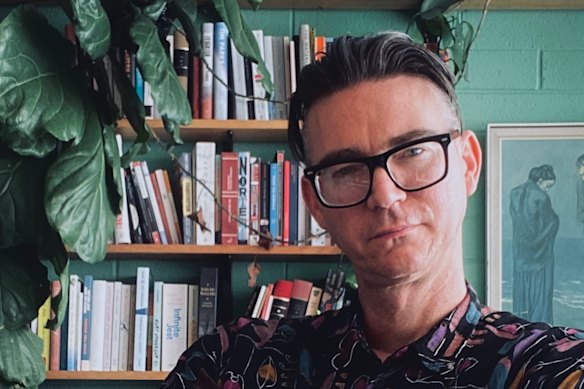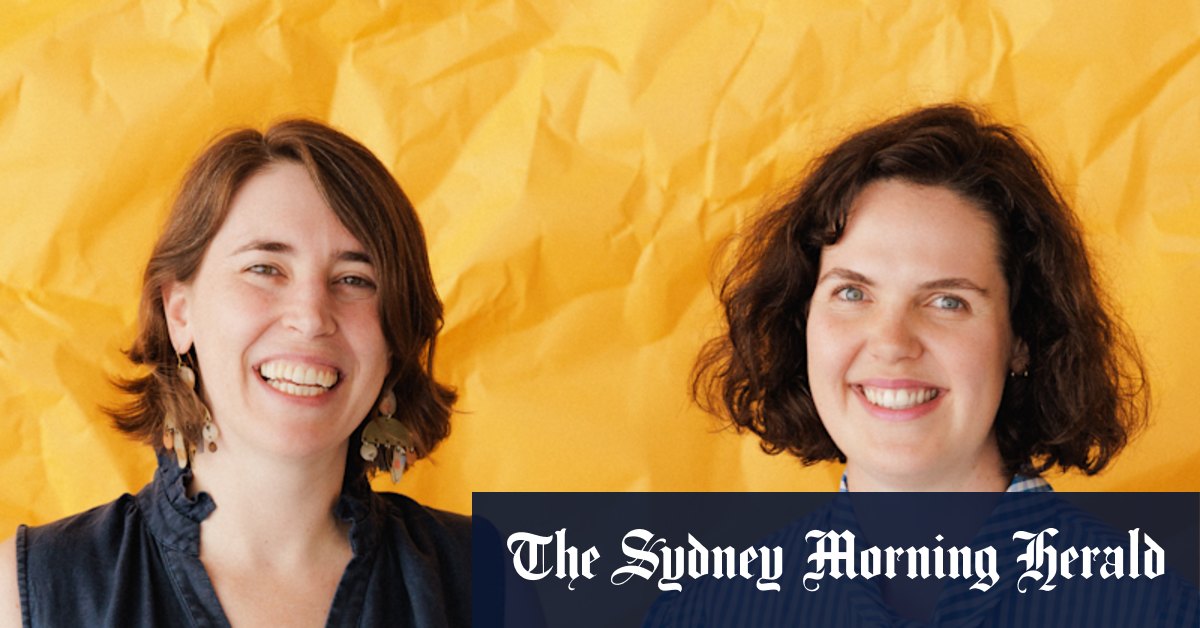Despite the gloom, there’s no keeping the new kids down. They see their role not as competing with the big five but more as offering something special that can’t be found elsewhere.
Perentie Press will encourage illustrators to write stories and will aim to discover new graphic novel writers through the Perentie Prize, which offers the winner a publishing contract and a $2500 advance. It plans to release some short graphic novels aimed at five- to eight-year-olds, and a young adult graphic novel, The Curator by Wendy Tyrer, with a highly appropriate theme: it’s about a paradise offered to young artists and creators to do their own thing … but they must give up everything else.

Adam Ouston has launched Evercreech Editions, which seeks to publish “the out-of-step, the weird, the boldly defiant”.Credit:
This year author, editor and writing teacher Adam Ouston has launched Evercreech Editions, a Tasmania-based press dedicated to “the out-of-step, the weird, the boldly defiant”. His press has grown organically out of conversations in the reading and writing community, where people were dissatisfied with “the narrow scope and opportunities for new, interesting writing”. He’s a huge fan of writing “that is often called difficult because it asks a reader to concentrate and think”.
First book off the press is a debut novel, My Heart at Evening by Konrad Muller, which deals with the suicide of Henry Hellyer, who had to face rumours about his sexuality in 1832 Tasmania, a very male-dominated part of the world. Muller was insistent that his book should only be published by a small press. Other books in the pipeline are an essay collection by an emerging Tasmanian author, a revival of a lost classic, and a Spanish novella in translation. “Australian readers are spoken down to a bit,” Ouston says. “People are crying out for more interesting, stimulating types of writing.”
Another launch this year is Pink Shorts Press. Founders Margot Lloyd and Emily Hart have worked for more than a decade in publishing around the country but longed to move back to Adelaide and work with the local literary community. “Then one publisher came out with this statement about how they’d discovered South Australian authors,” Lloyd says, “and we pretty much threw up our hands and decided we had to come home.”
They aim to release two batches of books every year. Current releases include Alex Cothren’s satirical short-story collection Playing Nice Was Getting Me Nowhere and Olivia De Zilva’s Plastic Budgie, a comic experimental take on autofiction. They are looking for “offbeat fiction, on the shorter side, perhaps with a genre crossover”. Another project is republishing the work of the late South Australian artist and writer Barbara Hanrahan, to introduce her to a new generation of readers.
Loading
In her work as an editor for the larger publishers, Ginny Grant noticed many books were trend-driven and celebrity-led: “I began to wonder about the quieter authors, the ones who didn’t have prominent public profiles and huge social-media followings.” So she has launched Bakers Lane Books, to discover titles that would not otherwise find a place in a competitive market.
She aims to publish about five titles a year for the next three years. The first will be a literary debut novel, The One Remaining by Paula McLean, “a poignant exploration of grief, identity and the power of storytelling”. She’s also publishing a social history of Broken Hill, The Town Like No Other, by Paula’s husband Robert McLean.
Grant aims to encourage more women writers with the imprint Fearless Press, and the Fearless Prize, which will offer $10,000 for an original work of fiction by a debut woman novelist. Although women writers get more support these days through initiatives like the Stella Prize, she feels that first step of getting a debut novel published needs more attention. “It’s such a vulnerable point in a writer’s journey, and a little support can make all the difference.”
How can the new players fund such risky endeavours? They aren’t applying for grants. Ouston has a “generous and silent benefactor”. The Pink Shorts Press founders will use their own savings. Grant is self-funding. Stephens says Perentie Press will operate on “a lot of enthusiasm, a little bit of seed funding, and hopefully it will fund itself”. She should know: she started the children’s book publisher Wombat Books 20 years ago “with pretty much nothing”.
Loading
What will help are distribution deals with larger publishers, and strong ties to a supportive local community. Authors shouldn’t expect big advances but the publishers promise a great deal of individual care and attention that can only come with a small list.
If there’s one thing the new independents would love, it would be some surefire way to get their books noticed. “Reaching readers today is a big question, especially when mainstream traditional arts media is sadly disappearing,” says Lloyd.
“There are a lot of amazing books out there but people don’t get to see them,” says Stephens. “And they don’t go looking outside of what they do see.”
The Booklist is a weekly newsletter for book lovers from Jason Steger. Get it delivered every Friday.

